Although I've always been a big fan of using reusable water bottles to be a hydrated girlie, I never thought it would be such a ~trend~.
Last week, I saw on social media people lining up outside Target during the wee hours to buy a Valentine's Day special edition pink Stanley tumbler. WILD!
While I love that everyone is trying to stay hydrated and increase their water intake, there is something that probably most of us aren't doing enough of or at all — cleaning our reusable water bottles!

A few weeks ago, a college student's PSA TikTok video explaining how she got mold poisoning from her reusable Owala water bottle went viral, receiving over 3 million views.

In her video, she explained how she had a cold that never went away. Doctors then diagnosed her with bronchitis and a bad sore throat. After being put on antibiotics, she decided to go home and clean her water bottle, as explained in her TikTok.
After looking online how to properly clean the lid of her bottle, she learned that the silicone piece of the bottle's lid had to be removed. It was then that she discovered it was covered in mold. “Once I cleaned it, I got better,” she said. “Haven’t gotten sick since — I had mold poisoning from my water bottle," she said in her video.
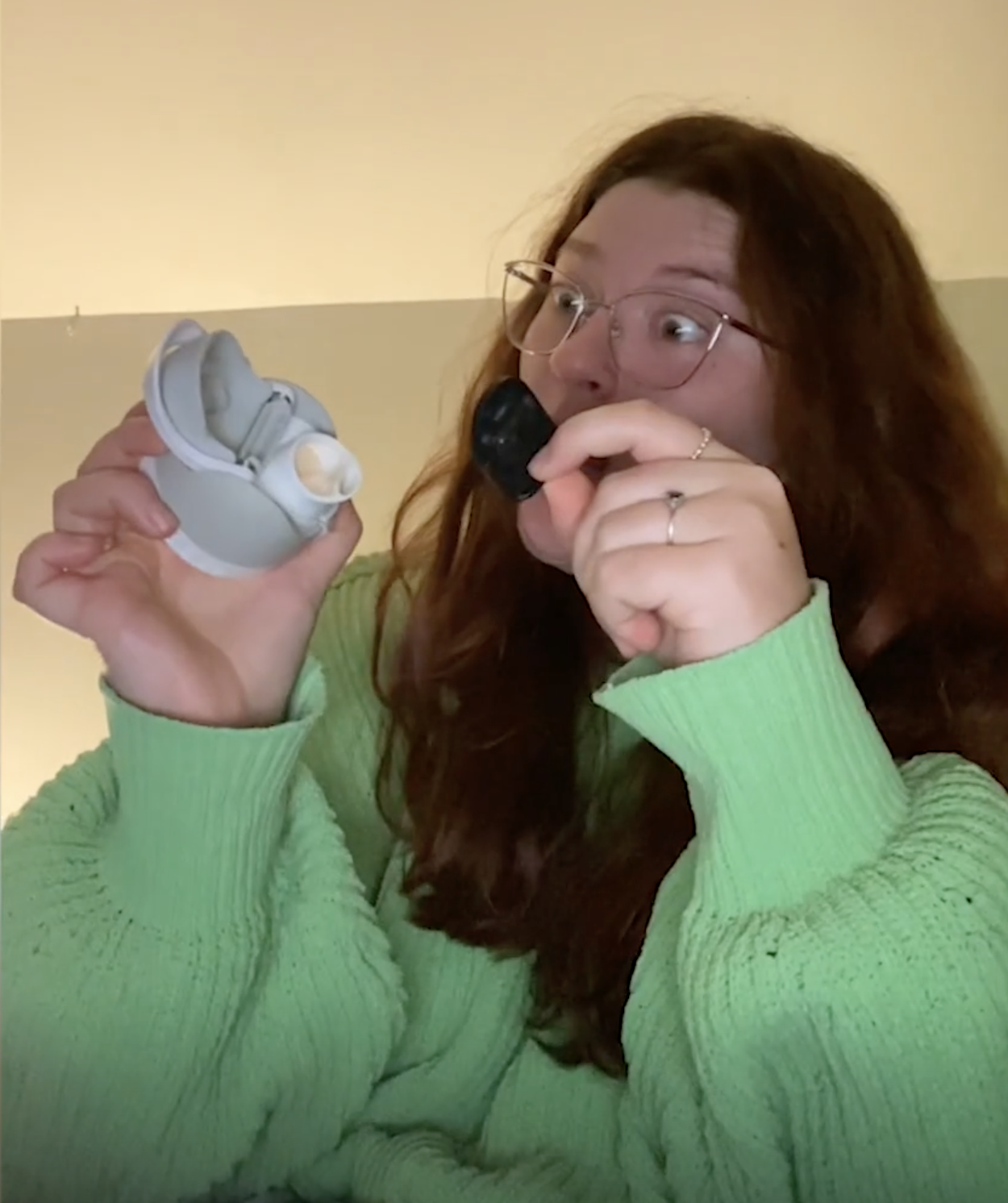
After learning of this shocking story, I did a quick search on TikTok to find that MANY people are concerned about mold potentially forming on their water bottles. Since I, too, use a reusable water bottle every day and am guilty of not washing it as often as I should, I turned to Dr. Jessica Peatross, MD, GP, internist, functional medicine practitioner, CGT, IFMCP, to get the lowdown on all things mold.

Dr. Peatross explained that mold can grow on everyday items like reusable water bottles and even water filters due to a combination of things.
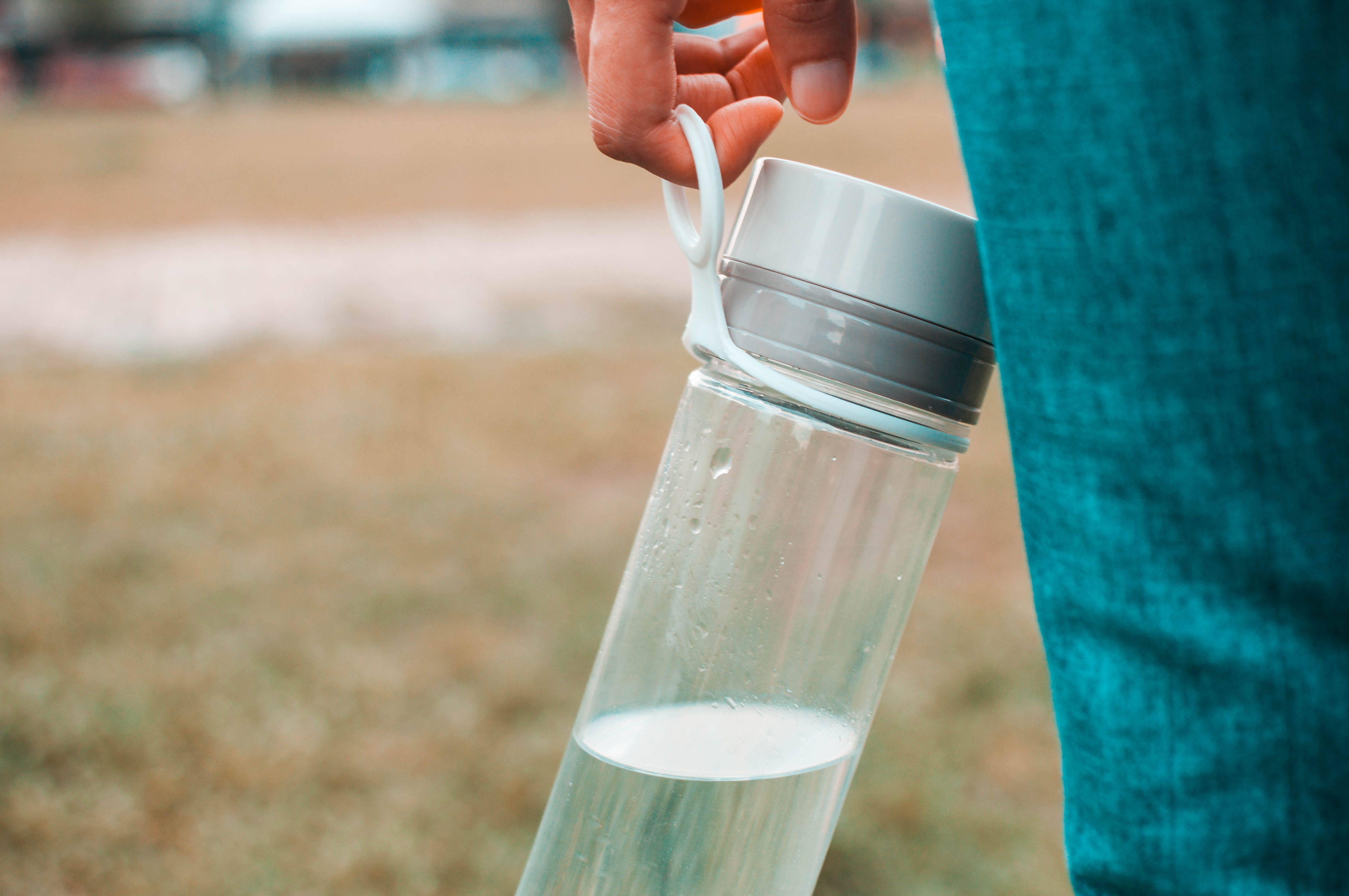
In addition to that, Dr. Peatross explained that mold loves moisture. "Mold needs moisture to grow, and any lingering moisture on the surfaces of water bottles, seals, or filters can create a conducive environment for mold development."
"This can happen if the items are not thoroughly dried after each use or if they are stored in a damp environment," she added.
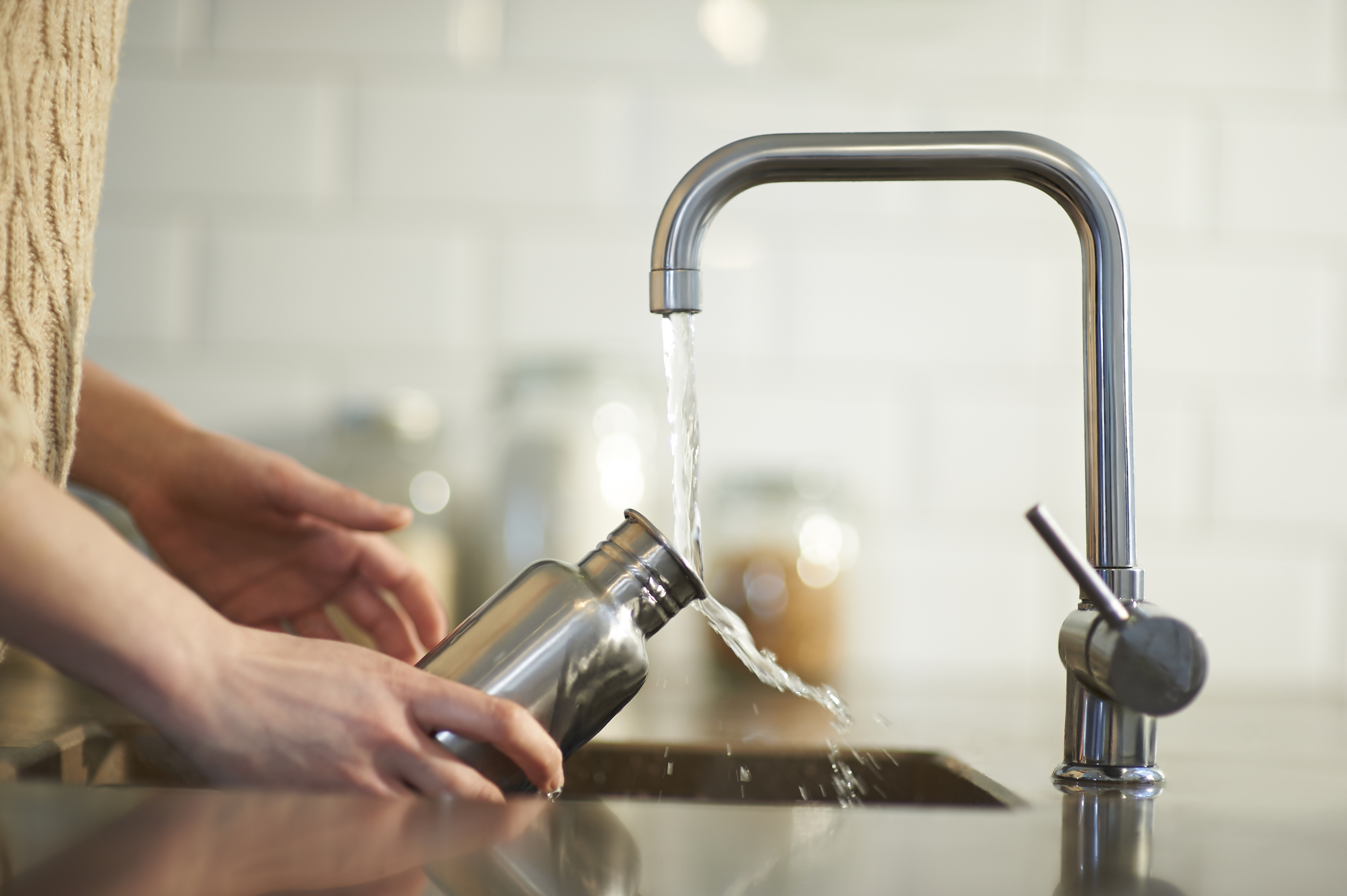
For some reassurance, Dr. Peatross explained that it is easy to keep reusable water bottles mold-free. "Wash and clean the items thoroughly after each use with a nontoxic cleaner like Dr. Bronner’s soap or Branch Basics, but regular old soap and water will work, too," she said.
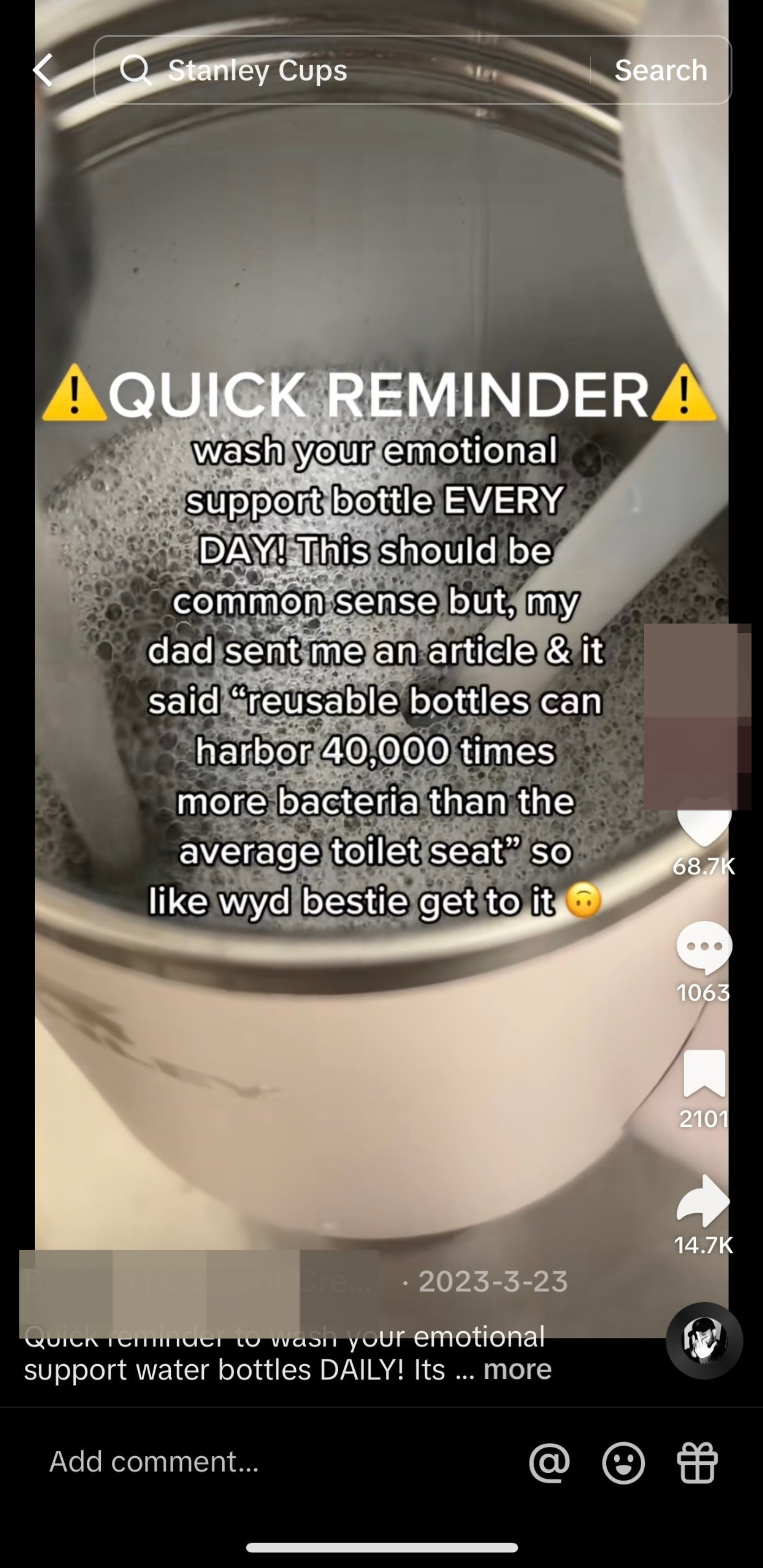
After cleaning your bottle, make sure to dry it completely and store it in a cool, dry place. Dr. Peatross advises that you also unscrew the lid and leave the bottle open to air when drying.
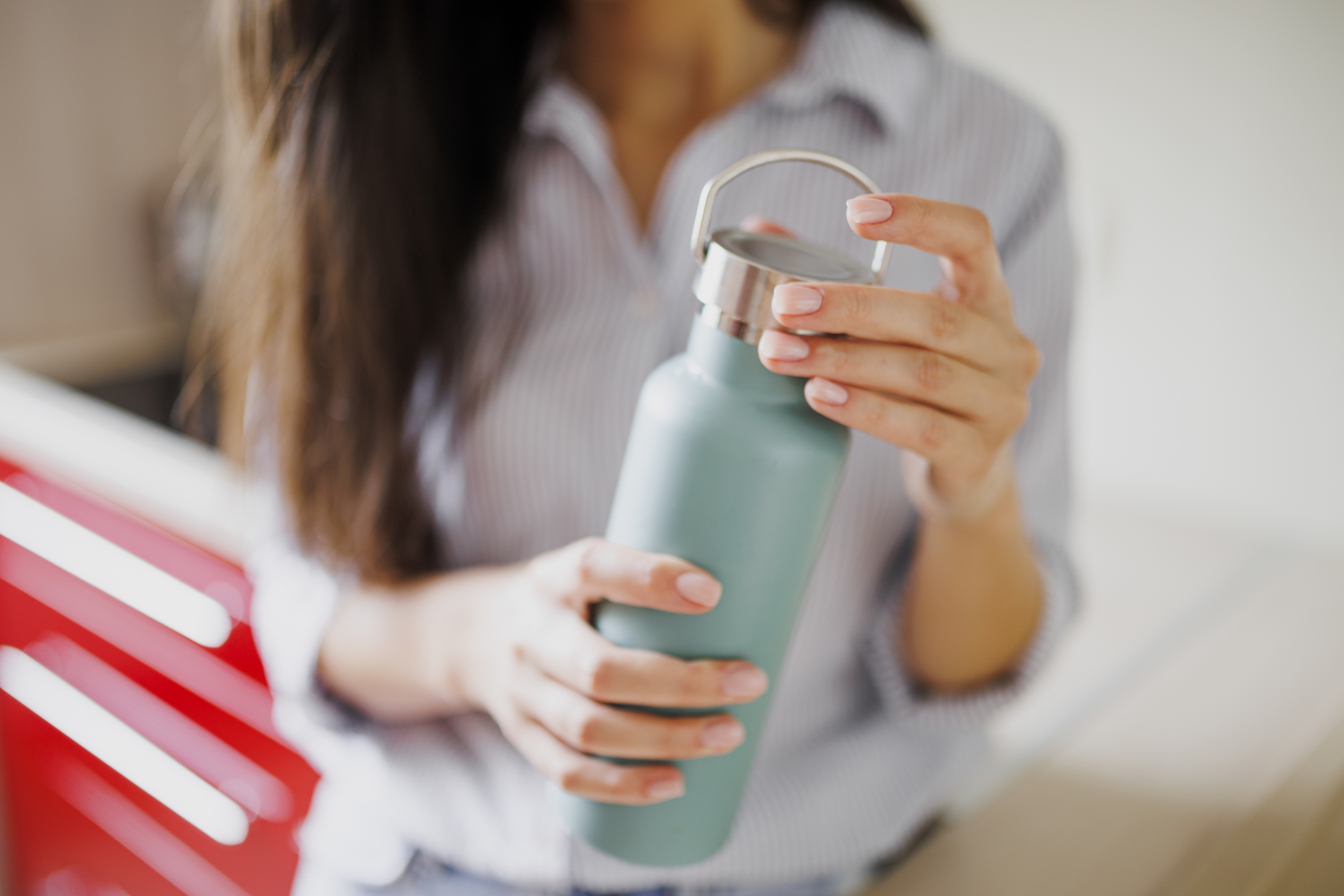
If you're someone who has been using a reusable water bottle for a while and doesn't regularly wash it, here are some things to know about "mold illness" if you're worried you've potentially been exposed to it.
"Mold illness, also known as 'mold toxicity' or 'mold-related illness,' refers to a range of health problems that are attributed to exposure to mold or water-damaged buildings," Dr. Peatross explained to BuzzFeed.
"Mold-related illnesses can manifest with a variety of symptoms, including respiratory problems (such as coughing and wheezing), nasal and sinus congestion, skin irritation and rashes like eczema, increased urinary frequency, digestive issues, headaches, fatigue, and general malaise," said Dr. Peatross.

